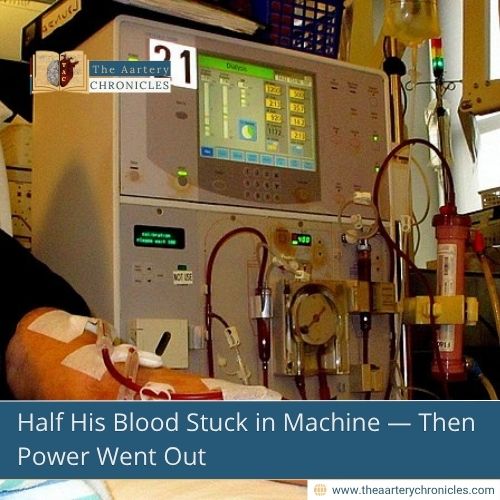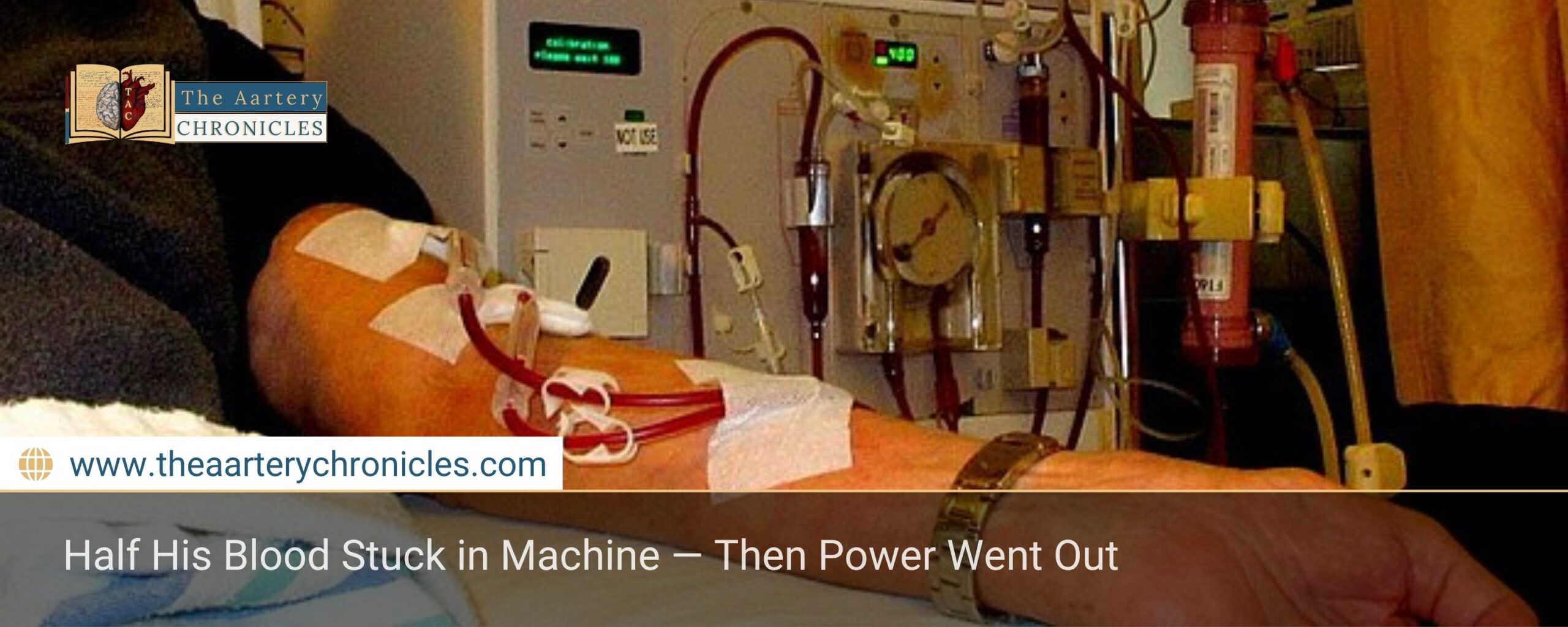

Half His Blood Stuck in Machine — Then Power Went Out
In a deeply concerning incident at Bijnor District Hospital, a 26-year-old kidney patient, Sarfaraz Ahmad, died during a dialysis session after a sudden power cut halted the life-saving treatment. The hospital’s backup generator, which should have restored power, failed to start due to the absence of diesel fuel.
What Went Wrong?
Sarfaraz, a resident of Phulsanda village, was in the middle of his dialysis when the electricity went out. His mother, present during the session, described how the dialysis machine stopped midway. “Almost half his blood was stuck in the machine,” she told media. “I pleaded with the staff to switch on the generator, but they didn’t help. He died shortly after.”
Shockingly, this all occurred during an official inspection of the hospital by Chief Development Officer (CDO) Purna Borah. At the time, five other dialysis patients were also left unattended, lying without fans, lights, or medical support.
What Experts Say
Though the patient’s mother believed a large volume of blood was trapped in the machine, medical experts have clarified that during haemodialysis, only a small amount—typically 200 to 250 milliliters—is outside the body at any given time.
However, specialists also stressed that abrupt stoppage of dialysis, especially in patients with unstable conditions, can lead to severe complications and even death. A sudden interruption in the process can cause a buildup of toxins or trigger blood pressure imbalances.
Negligence and Mismanagement Identified
According to hospital authorities, the root of the issue was a repeated failure by Sanjeevani, the private company contracted to run the dialysis unit. Since 2020, the unit has operated under a public-private partnership. Staff said that despite several warnings, the company failed to keep the generator fueled.
District Magistrate Jasjit Kaur visited the hospital soon after the incident. She found unhygienic conditions in the dialysis unit and confirmed that there had been serious mismanagement. “All records from the dialysis unit have been seized. A formal case is being filed against the agency, and we are initiating steps to blacklist them,” Kaur announced.
Why This Matters
This tragic event highlights the critical need for robust infrastructure and accountability in healthcare services, especially in government hospitals where thousands rely on free or subsidized care. Dialysis is a life-sustaining process for patients with kidney failure, and even a brief lapse in service can lead to devastating outcomes.
Patients’ lives depend on consistent care and timely intervention. Preventing such tragedies requires not only technical preparedness but also compassionate and responsive hospital management.
Source: Inputs from various media Sources

Priya Bairagi
Reviewed by Dr Aarti Nehra (MBBS, MMST)
I’m a pharmacist with a strong background in health sciences. I hold a BSc from Delhi University and a pharmacy degree from PDM University. I write articles and daily health news while interviewing doctors to bring you the latest insights. In my free time, you’ll find me at the gym or lost in a sci-fi novel.








